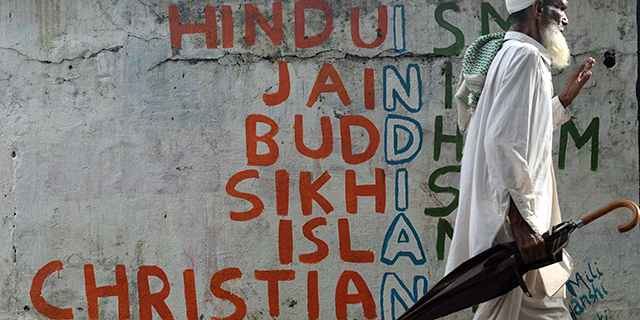
In 2020, properties in 102 countries and territories were targeted in incidents tied to religion
In 2020, properties in 102 of the 198 countries and territories in the study were targeted in incidents tied to religion.
In 2020, properties in 102 of the 198 countries and territories in the study were targeted in incidents tied to religion.
About a quarter of U.S. adults regularly watch religious services online or on TV, and most of them are highly satisfied with the experience. About two-in-ten Americans (21%) use apps or websites to help with reading scripture.
About three-quarters of U.S. adults rate spending time with family as one of the most important things to them.
Most parents pass along religious and political affiliations, and they do so at similarly high rates, according to a new analysis of several surveys.
In states where abortion is prohibited, the share of people who say access to abortion should be easier has increased since August 2019. A majority of residents in those states say it would be difficult to get an abortion in the area where they live today, up 21 points from four years ago.
Most Americans say it’s not necessary to believe in God in order to be moral and have good values, according to a spring 2022 survey.
Catholics remain the largest religious group among Latinos in the United States, even as their share among Latino adults has steadily declined over the past decade. The share of Latinos who are religiously unaffiliated is now on par with U.S. adults overall.
The Census Bureau has collected data on Americans’ income, race, ethnicity, housing and other things, but it has never directly asked about their religion.
A majority of Americans say medication abortion should be legal, but there is a stark divide by age, religion and party affiliation.
During the pandemic, a stable share of U.S. adults have been participating in religious services in some way – either virtually or in person – but in-person attendance is slightly lower than it was before COVID-19. Among Americans surveyed across several years, the vast majority described their attendance habits in roughly the same way in both 2019 and 2022.
The Global Religious Futures (GRF) project is jointly funded by The Pew Charitable Trusts and The John Templeton Foundation. Here are some big-picture findings from the GRF, together with context from other Pew Research Center studies.
Indians see religious tolerance as a central part of who they are as a nation. Across the major religious groups, most people say it is very important to respect all religions to be “truly Indian.”
Today, most Black adults say they rely on prayer to help make major decisions, and view opposing racism as essential to their religious faith.
The Christian share of the U.S. population is declining, while the share of Americans who do not identify with any organized religion is growing. These changes affect all regions in the country and many demographic groups.












